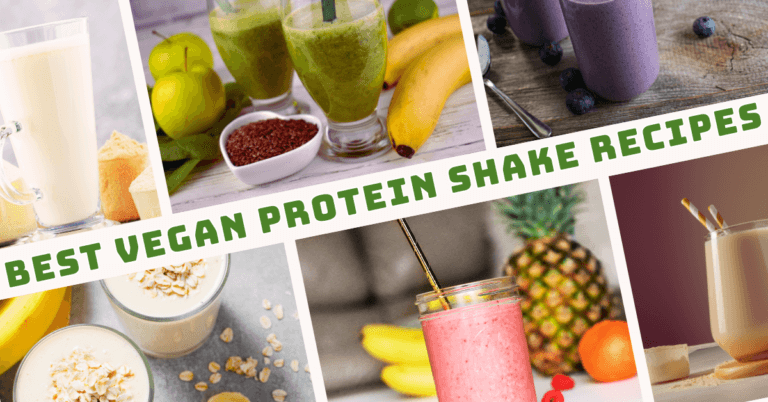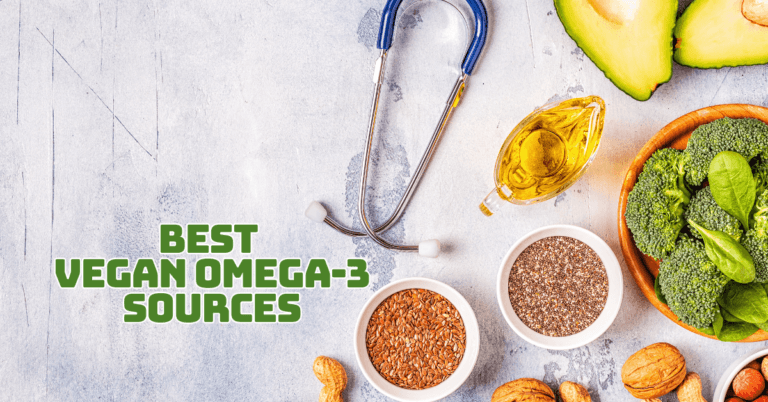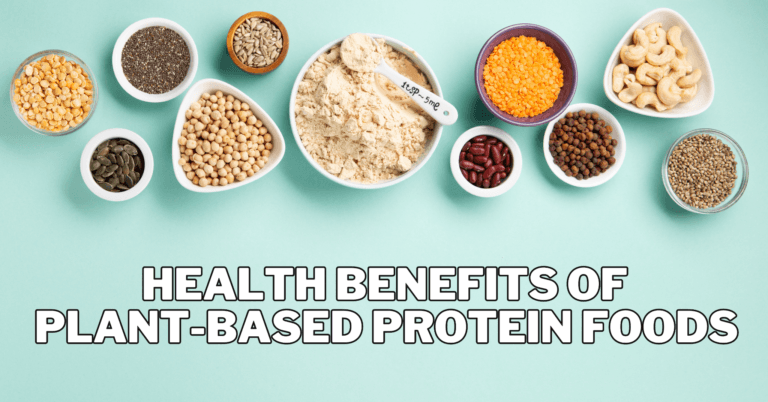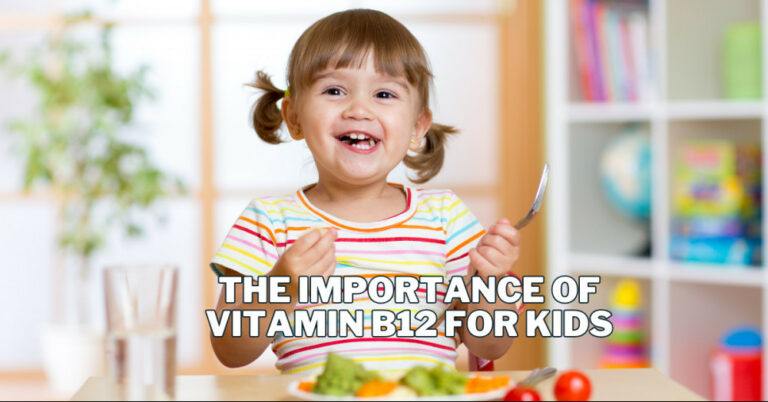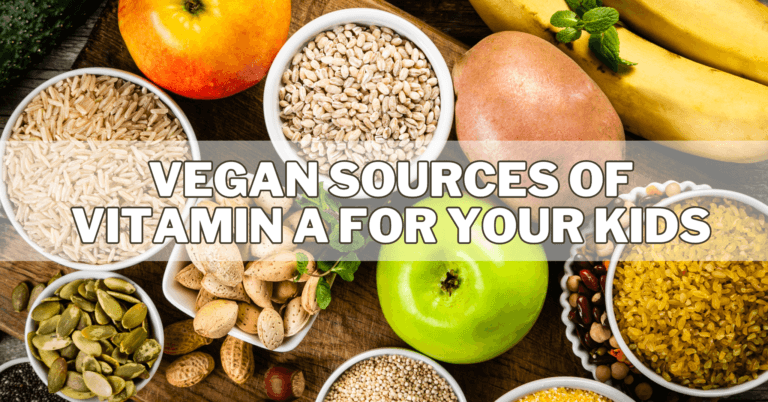Best Vegan Sources Of Protein
Best Vegan Sources Of Protein
The spotlight on plant-based diets has never shone brighter in a world increasingly drawn towards conscious choices for health, sustainability, and ethical considerations.
Among the myriad aspects that define the potency of a vegan lifestyle, the quest for adequate protein sources stands as a prominent pillar.
While concerns about protein sufficiency may arise, the plant kingdom reveals a treasure trove of versatile, nutrient-rich options that cater to both taste preferences and the body's fundamental needs.
This exploration dives into the bountiful realm of vegan protein sources, from legumes that pack a protein punch to grains, nuts, seeds, and innovative plant-based creations.
Whether you're embracing veganism for the first time, seeking to diversify your protein intake, or simply curious about the potency of plant-powered nourishment, this guide unveils the plant-based tapestry of protein, inviting you to embark on a journey that fuels your body, mind, and values.
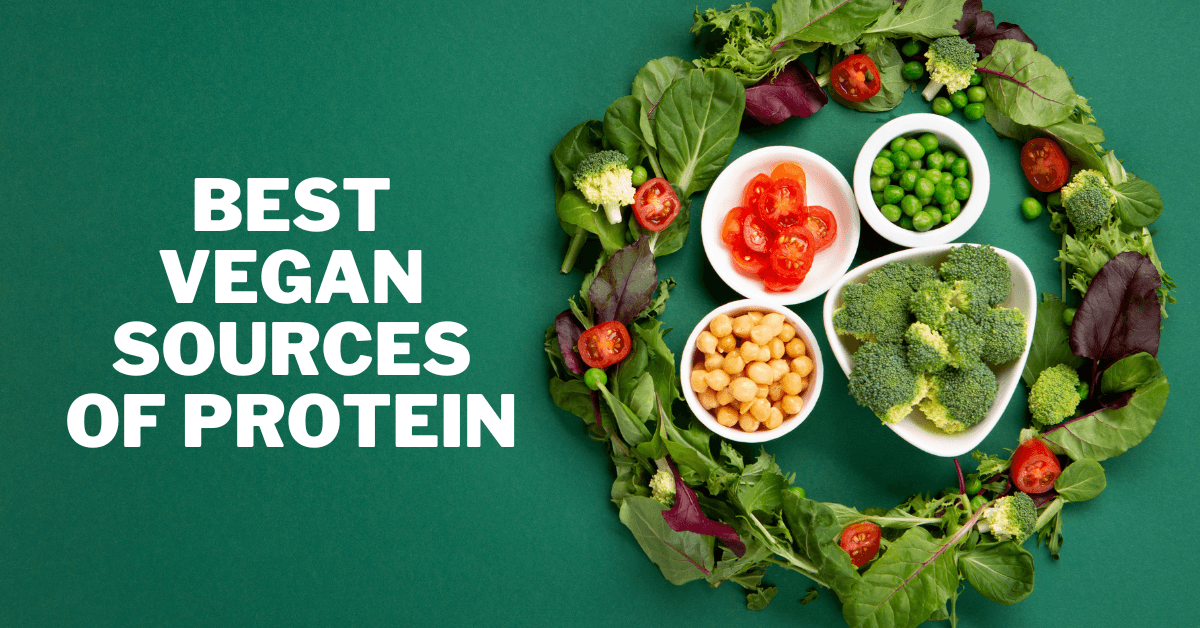
Exploring Vegan Sources Of Protein
While legumes, tofu, and nuts are well-known vegan protein powerhouses, the plant kingdom boasts an array of unique and lesser-known sources that can be integrated into a balanced and diverse diet:
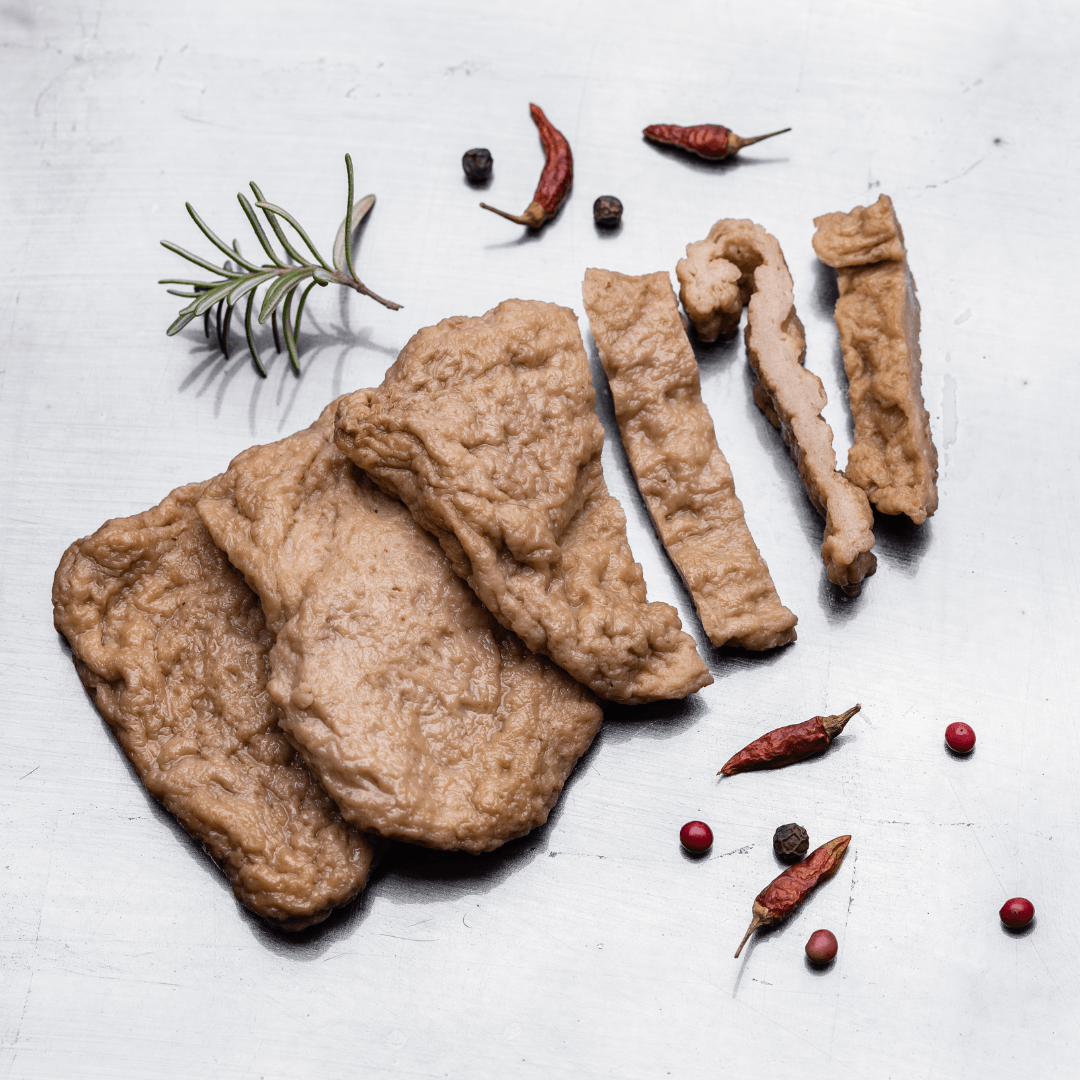
1. Seitan (Wheat Gluten)
Seitan, aptly referred to as “wheat meat” or “wheat gluten,” is a protein powerhouse in vegan cuisine.
Crafted from vital wheat gluten, the protein-rich component extracted from wheat, seitan offers a remarkable versatility that makes it a sought-after meat substitute.
Its dense and chewy texture makes it an excellent substitute for traditional meat, allowing it to adapt seamlessly to many culinary applications.
One of seitan's most captivating aspects is its culinary adaptability. When seasoned and cooked, seitan becomes a chameleon, absorbing flavours and taking on textures that mimic various types of meat, from tender roast beef to succulent chicken.
Marination, grilling, sautéing, and even simmering in broths are just a few techniques that enhance its appeal. The result is a canvas upon which chefs can craft various delectable dishes, ranging from hearty stews to savoury stir-fries and delicious sandwiches.
Beyond its culinary allure, seitan boasts a robust protein content that contributes significantly to meeting dietary protein requirements.
Its protein concentration, combined with minimal fat and carbohydrates, appeals to those seeking to boost their protein intake while adhering to a plant-based lifestyle.
With its innate ability to absorb flavours and the potential for culinary innovation, seitan takes center stage as a dynamic and flavourful addition to the repertoire of vegan protein sources. It caters to the palates and preferences of those on a quest for protein-rich, ethically conscious nourishment.
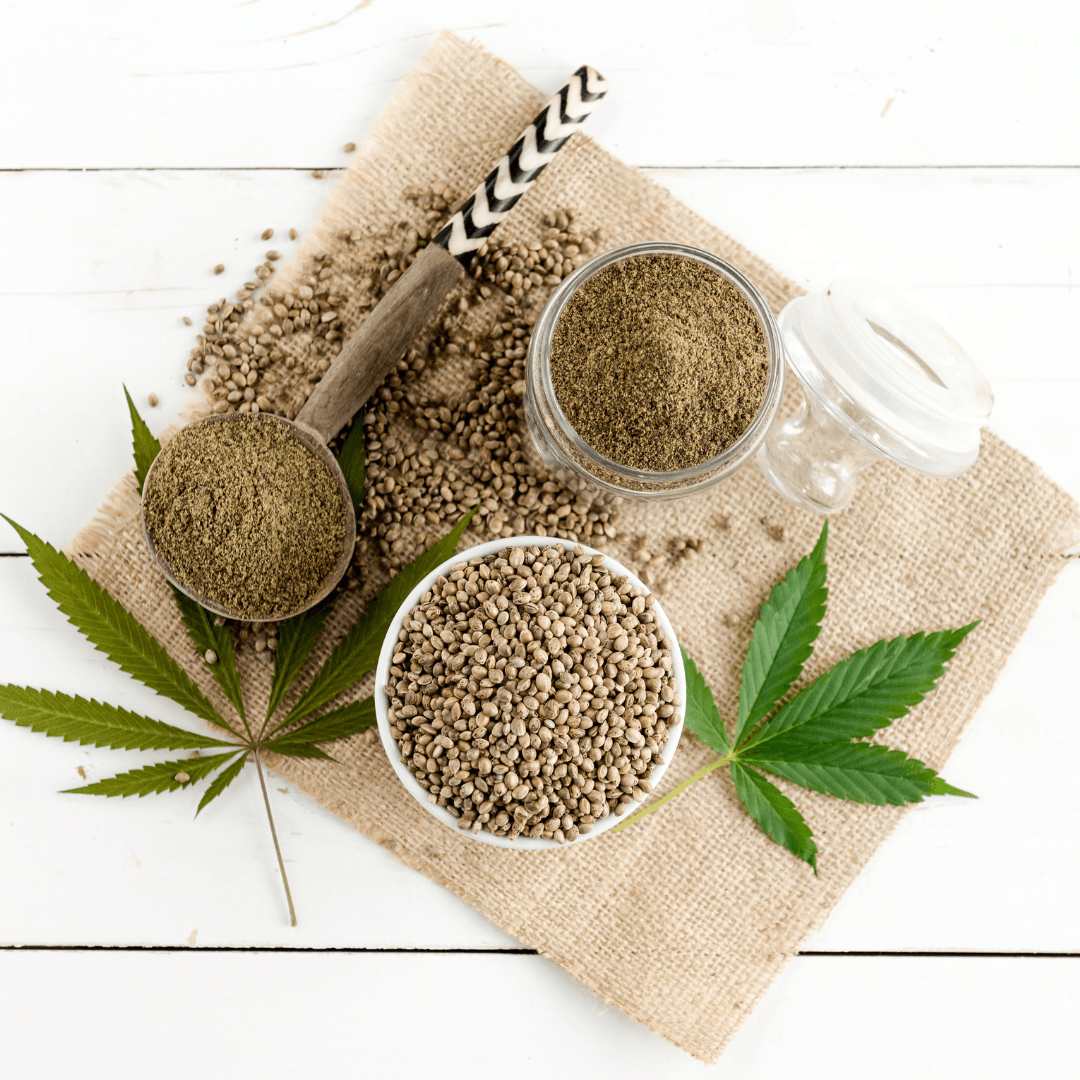
2. Hemp Seeds
Often dubbed a superfood, hemp seeds emerge as a small but mighty nutritional powerhouse within plant-based protein sources.
These unassuming seeds pack a potent punch. They boast a complete protein profile that encompasses all the essential amino acids the human body requires.
Beyond their protein bounty, hemp seeds are rich in various nutrients that contribute to overall well-being. Their generous offering of healthy fats, including omega-3 and omega-6 fatty acids, supports heart health and cognitive function, while their impressive fiber content aids digestion and promotes a sense of satiety. Versatility is a hallmark of hemp seeds, making them an easy and convenient addition to diverse dishes.
Their subtle nutty flavour harmonizes seamlessly with sweet and savoury creations, allowing them to be sprinkled atop salads, incorporated into smoothies, or stirred into yogurt for added creaminess and nutrition.
Additionally, hemp seeds can make homemade plant-based milk and dressings, further accentuating their culinary adaptability.
By embracing hemp seeds, individuals can infuse their diets with a wholesome blend of protein, healthy fats, and dietary fibre, fostering a balanced and holistic approach to nourishment.
Whether seeking to enhance protein intake, support cardiovascular health, or elevate the nutritional content of meals, hemp seeds stand as a miniature nutritional marvel that holds the potential to invigorate and promote plant-based eating experiences.
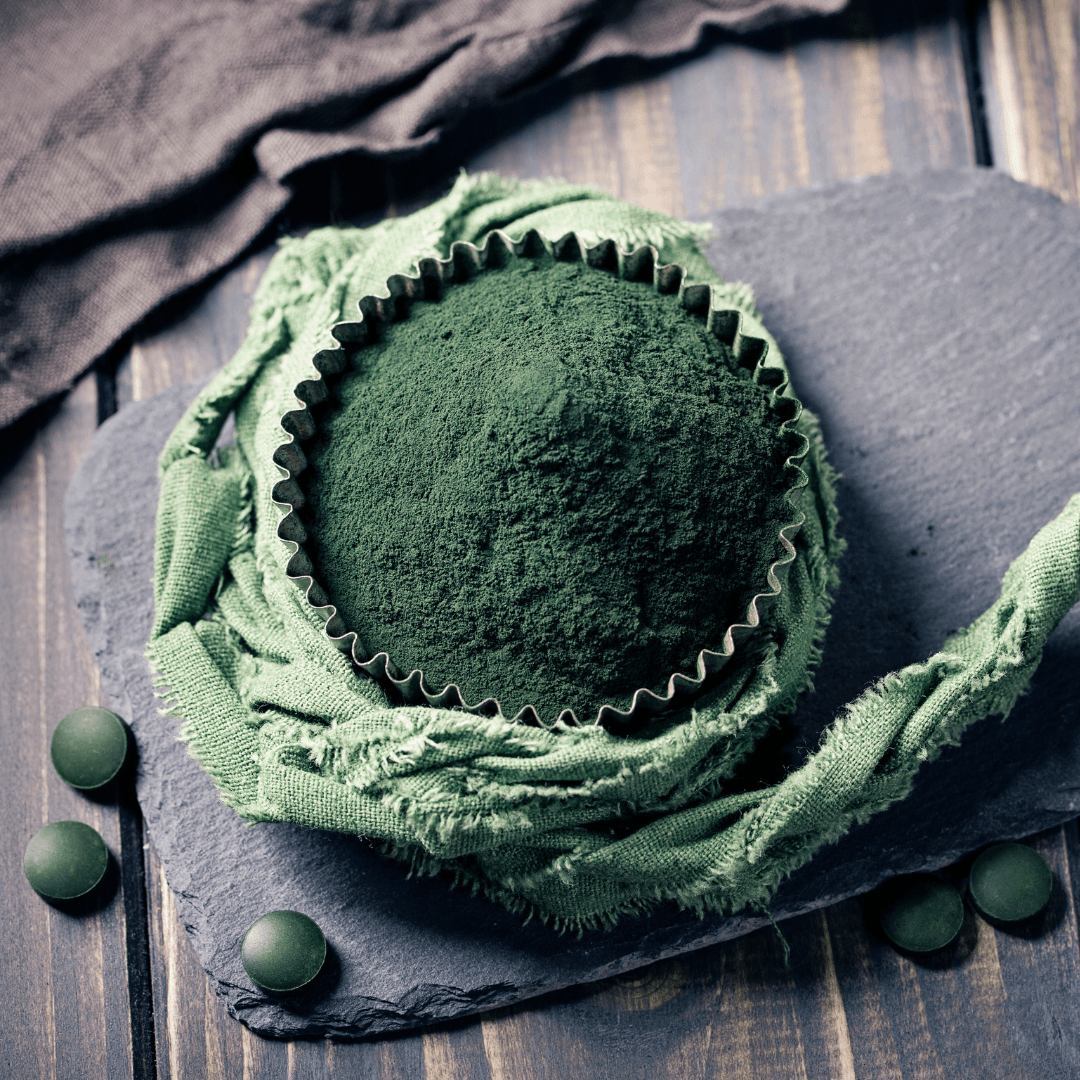
3. Spirulina
Spirulina, a revered blue-green algae, emerges as a verdant jewel in the crown of plant-based protein sources.
Beyond its vibrant hue, spirulina is celebrated for its exceptional protein content. It contains an impressive array of amino acids that contribute to muscle repair and growth.
Yet, spirulina's nutritional prowess extends far beyond its protein bounty. This superfood boasts a kaleidoscope of vitamins and minerals essential for vitality and well-being, including vitamin B12, iron, and magnesium.
Furthermore, its antioxidant arsenal, featuring compounds like phycocyanin and chlorophyll, supports cellular health by combating oxidative stress and inflammation.
Spirulina's culinary potential is as diverse as its nutrient profile. Its finely powdered form effortlessly integrates into smoothies, infusing them with a refreshing green hue and an enriching dose of protein and micronutrients.
Creative concoctions abound, as spirulina can be incorporated into freshly pressed juices, energizing energy bars, and even baked goods, offering a novel twist to traditional recipes.
As an algae-based source of protein and a veritable treasure trove of nutrients, spirulina stands as a testament to the magnificence of plant-derived sustenance.
It invites individuals to embrace its vibrant essence and harness its potential to nourish the body, uplift the spirit, and thrive in the embrace of nature's bounty.
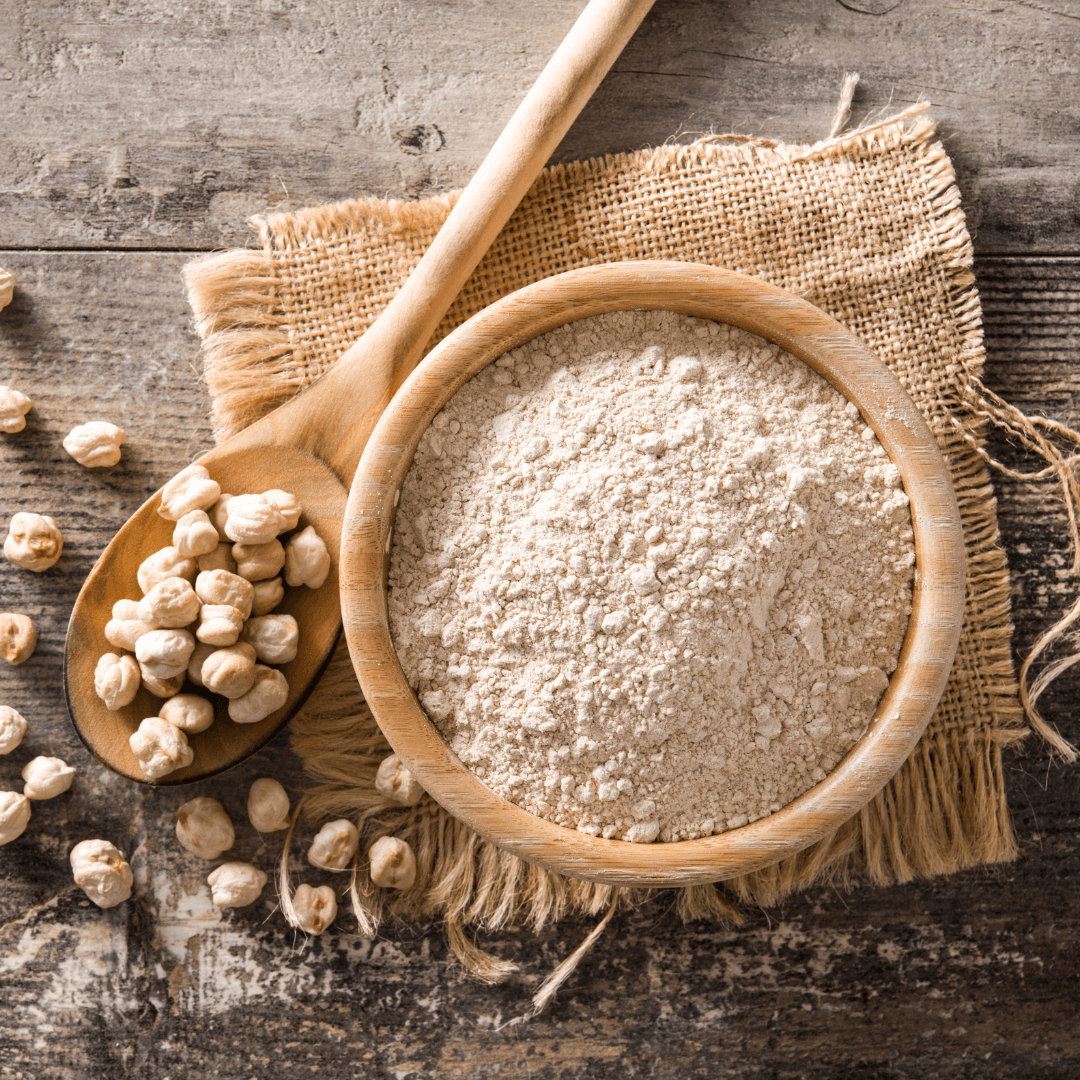
4. Chickpea Flour (Besan)
Chickpea flour, affectionately known as besan, unfurls as a cherished gem in diverse cultures' culinary tapestry.
Derived from ground chickpeas, this versatile flour encapsulates a medley of flavours and nutrients, contributing to gastronomic delight and nutritional enrichment.
Renowned for its distinct nutty and earthy undertones, chickpea flour seamlessly integrates into various savoury dishes, ranging from beloved cakes and pancakes to the satisfying allure of omelets.
Beyond its culinary allure, chickpea flour is a bona fide protein powerhouse. Its formidable protein content harmoniously aligns with the demands of a plant-based lifestyle.
This protein infusion supports muscle repair and growth and offers a sense of satiety that can regulate appetite.
Furthermore, chickpea flour holds the banner of being gluten-free, catering to those with dietary sensitivities or preferences.
As an embodiment of culinary ingenuity, chickpea flour presents an opportunity to imbue traditional recipes with a protein-rich twist, all while delighting the taste buds with its distinct and delectable flavour profile.
From the luscious crispness of cakes to the tender embrace of omelets, chickpea flour beckons individuals to savour the synergy of taste and nourishment, allowing each bite to reflect the bounty of nature's offerings and the creative prowess of plant-based cuisine.
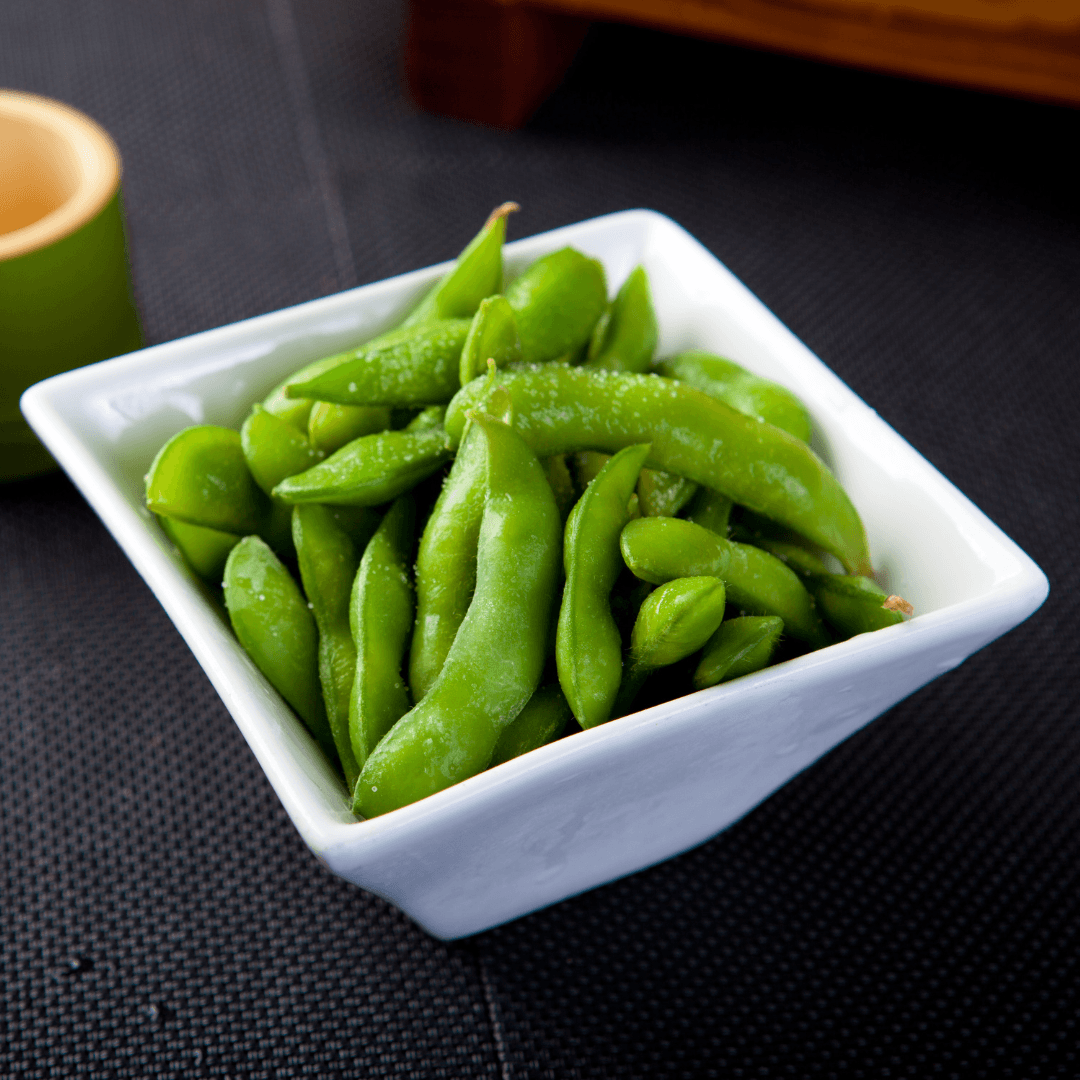
5. Edamame
Edamame, the youthful incarnation of soybeans, is a delightful and nutrient-dense addition to the array of plant-based protein sources.
With a succulent and slightly sweet flavour, edamame is a testament to the harmony of taste and nutrition.
These vibrant green pods encapsulate a commendable protein content, rendering them a valuable ally in meeting daily protein requirements while adhering to a vegan lifestyle.
The versatility of edamame is a hallmark of its appeal. With their irresistible crunch and inherent goodness, edamame beans can be relished as a wholesome snack or seasoned lightly to satiate midday cravings.
Edamame elevates the nutritional profile of salads and grain bowls by adding a burst of colour, texture, and plant-based protein that enhances meals' overall satiety and healthfulness.
Furthermore, edamame's chameleon-like nature allows them to be creatively incorporated into many dishes, from stir-fries and soups to wraps and dips.
Rich in essential amino acids, edamame supports muscle growth and repair, making it a natural choice for individuals seeking to optimize their protein intake.
Additionally, edamame bestows an array of vitamins and minerals, including folate, vitamin K, and manganese, contributing to holistic well-being.
As a testament to the wonders of plant-based nutrition, edamame invites individuals to relish its delectable taste and abundant protein bounty, exemplifying the symbiotic relationship between nourishment and delight in plant-based eating.
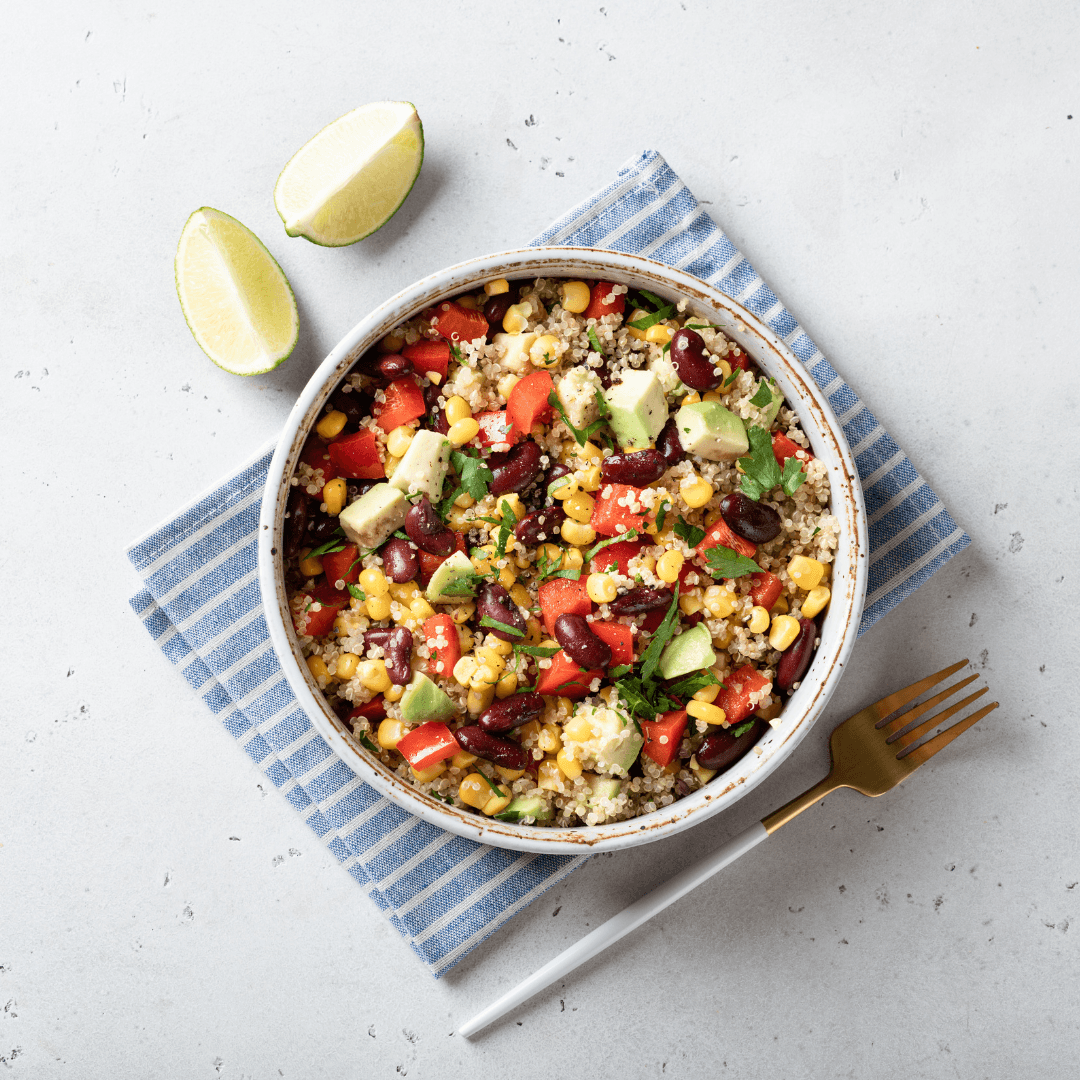
6. Quinoa
Quinoa, a revered ancient grain, is a nutritional marvel that has found its rightful place in modern plant-based diets.
Renowned for its unique nutrient composition, quinoa's profile is characterized by its distinction as a complete protein, an attribute rarely found in plant-based foods.
Comprising all nine essential amino acids, quinoa is a nutrient-packed powerhouse that holds the potential to fulfill the protein requirements of vegans with exceptional efficacy.
The exceptional versatility of quinoa further amplifies its appeal. Its delicate nutty flavour and tender yet slightly crunchy texture serve as a canvas for various culinary creations, ranging from hearty grain bowls and vibrant salads to comforting porridges and delectable stuffed vegetables.
This adaptable grain satiates the palate and nourishes the body with a robust nutritional package encompassing protein, dietary fiber, magnesium, iron, and B vitamins.
Quinoa's status as a complete protein underscores its significance as a foundational element within the vegan diet.
It supports muscle repair, immune function, and overall vitality, positioning itself as a strategic ally for those seeking to maintain balanced nutrition.
With quinoa's bounty of nutrients and its remarkable protein integrity, it stands as a testament to the profound potential of plant-based foods in crafting well-rounded and nourishing dietary choices that honour both health and ethical values.
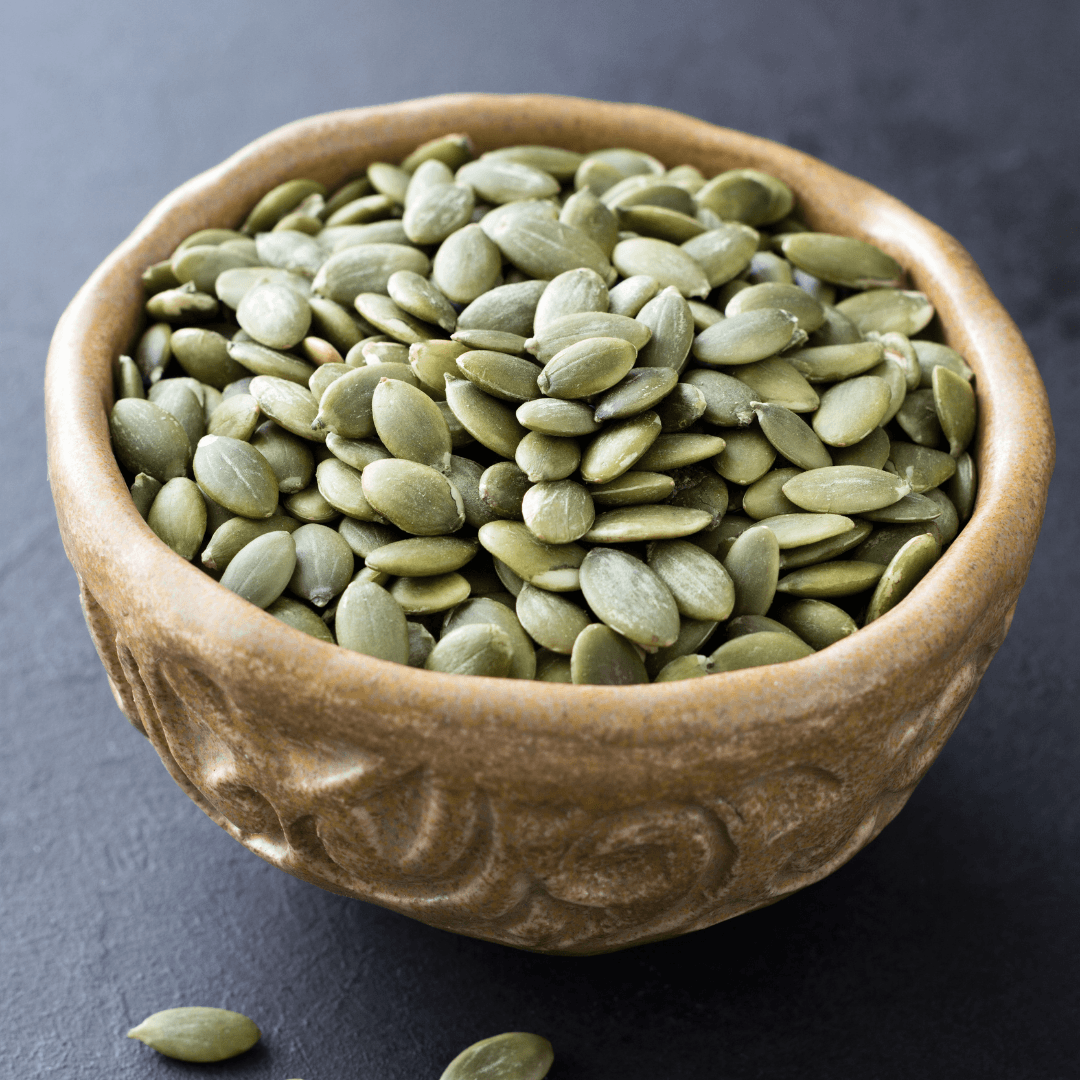
7. Pumpkin Seeds (Pepitas)
Pumpkin seeds, affectionately known as pepitas, stand as a small yet potent nutritional treasure trove within plant-based protein sources.
Beyond their delectable crunch and earthy flavour, these unassuming seeds boast an impressive nutritional profile that extends far beyond protein.
With a generous supply of iron, magnesium, and zinc, pumpkin seeds emerge as a dynamic and multifaceted addition to the vegan diet.
The protein content of pumpkin seeds aligns harmoniously with their role as a muscle-supporting nutrient.
This protein infusion improves tissue repair, immune function, and overall health maintenance. Meanwhile, the presence of iron lends its support to oxygen transport within the body, bolstering energy levels and ensuring cellular vitality.
Additionally, the duo of magnesium and zinc collaborates to enhance bone health, nerve function, and immune resilience, fortifying the body's mechanisms of well-being.
Pumpkin seeds' culinary adaptability further amplifies their allure. As a standalone snack, they cater to moments of midday nourishment, offering a satiating crunch imbued with essential nutrients. Incorporating them into salads adds a textural dimension and a nutrient boost that elevates the vibrancy of meals.
Furthermore, the creative potential extends to using them as a garnish for soups, crunchy topping for yogurt, or a foundational element within energy bars.
Pumpkin seeds beckon individuals to savour the harmony of flavour and nourishment, embracing their unique blend of protein and essential minerals, embodying nature's nutritional bounty.
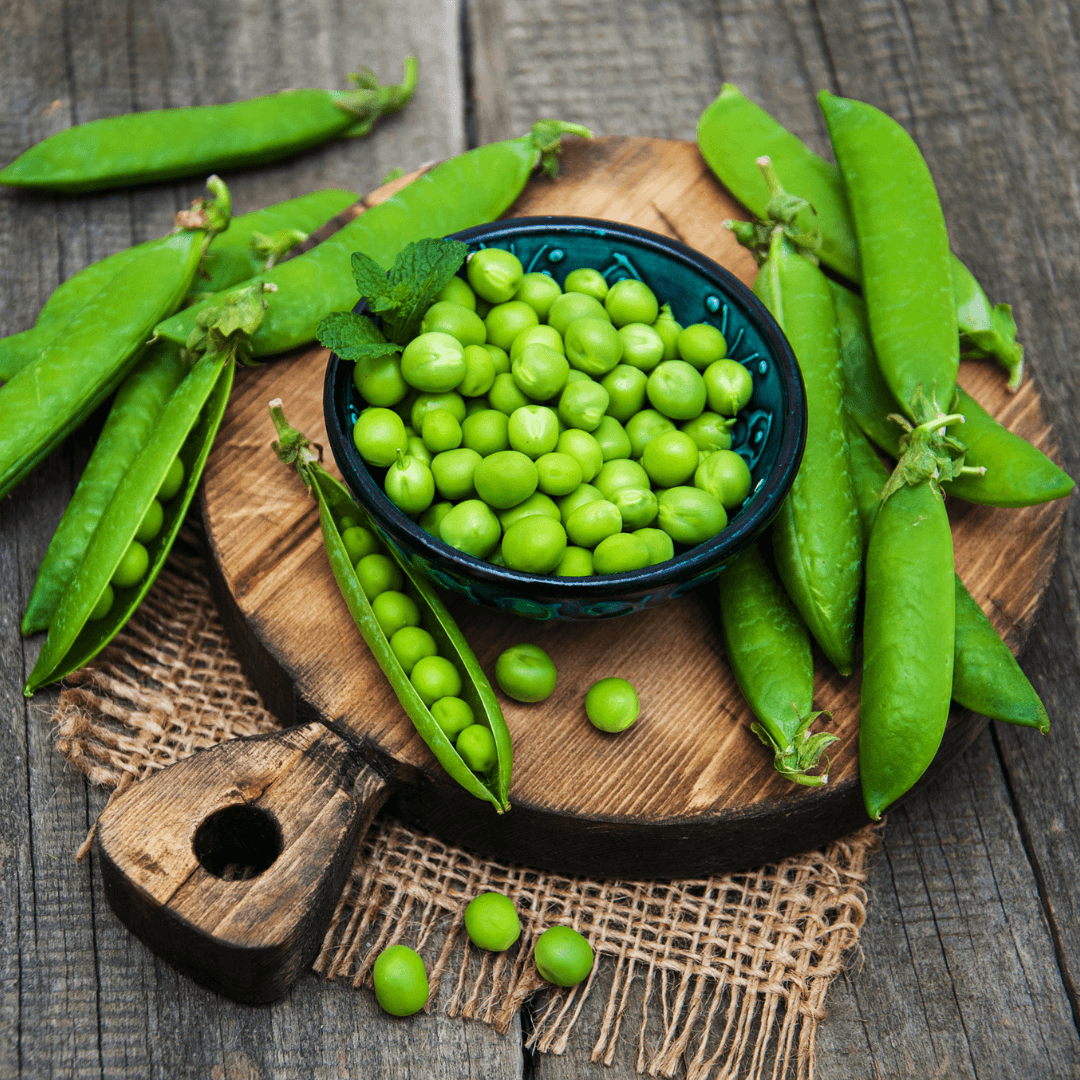
8. Green Peas
Green peas, a humble and often underestimated legume, unveil an unexpected and commendable protein content that bolsters their position as a discreet yet impactful addition to the array of plant-based protein sources.
Their tender sweetness and vibrant hue belie the nutritional bounty they hold, offering a convenient and wholesome means of protein intake for vegans.
While other legumes may overshadow their protein contribution, green peas are a versatile and nutrient-rich option that can seamlessly integrate into diverse culinary endeavours.
The protein content in green peas is essential in supporting muscle maintenance and repair and contributing to overall well-being.
Beyond protein, its distinctive food profile includes a variety of vitamins and minerals, including vitamin K, vitamin C, and dietary fiber, which support immunological function, bone density, and gastrointestinal regularity.
The unassuming nature of green peas belies their potential to shine as a stand-alone snack, either fresh or frozen, or to enhance the texture and nutritional content of soups and stews.
Their gentle flavour and soft texture make them suitable candidates for being transformed into dips, allowing them to be harnessed creatively to elevate the nutritional value of meals.
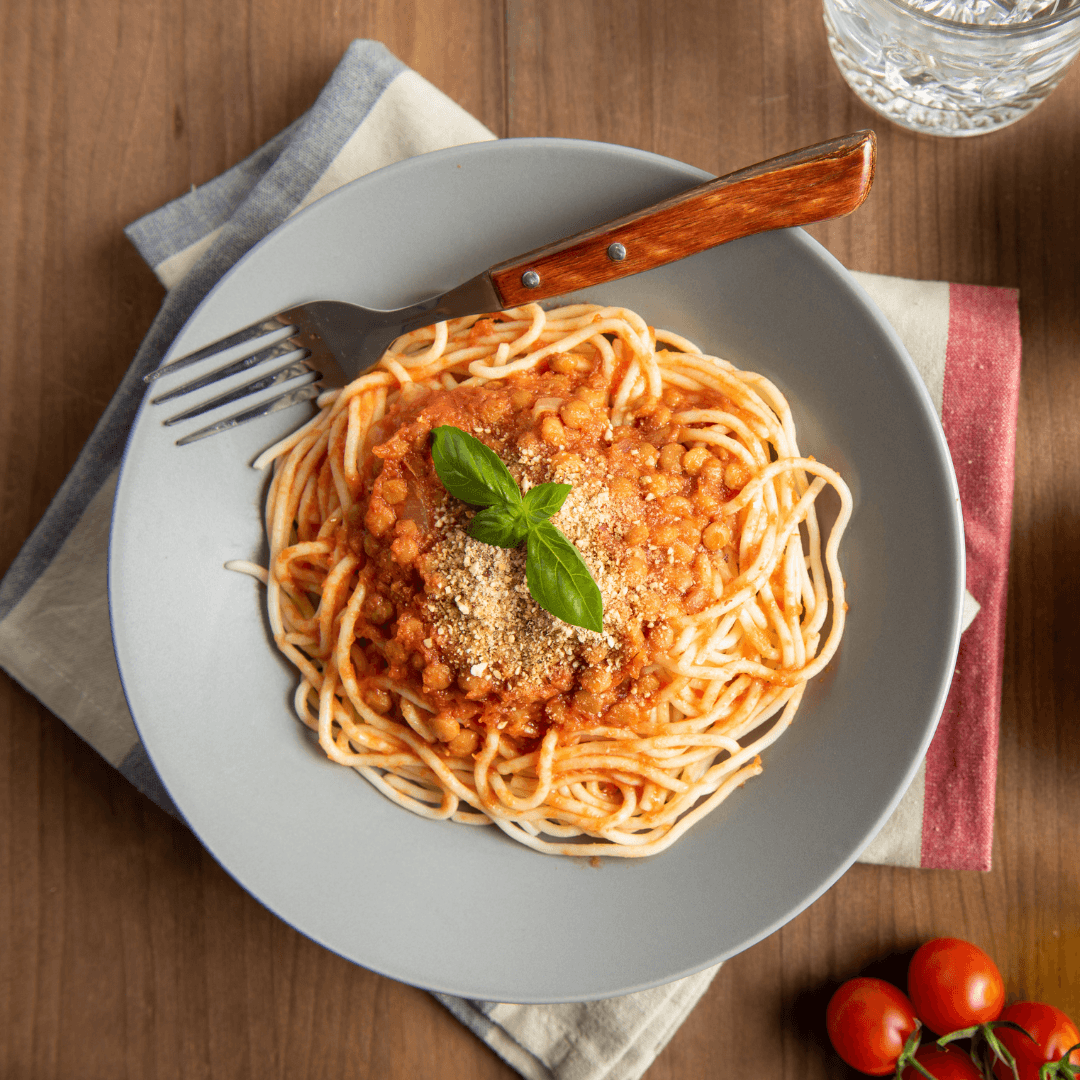
9. Lentil Pasta
Lentil pasta, a captivating innovation within plant-based cuisine, emerges as a stellar protein-rich alternative to conventional wheat-based pasta.
Crafted from lentil flour, this culinary gem presents an enticing solution for those seeking to elevate their protein intake while indulging in a comforting pasta dish.
Beyond its protein prowess, lentil pasta distinguishes itself with a unique nutty undertone and a firm texture that elevates the sensory experience of every bite.
The protein content inherent to lentil pasta is a remarkable facet that sets it apart from its traditional wheat counterparts.
Lentils, as a legume, are renowned for their formidable protein composition, and this characteristic is seamlessly translated into the pasta derived from their flour.
This protein infusion supports muscle health, satiety, and balanced energy levels. Furthermore, the natural nutty essence of lentil pasta lends a distinct and satisfying flavour profile that harmonizes exquisitely with a range of sauces and seasonings.
Lentil pasta's textural integrity adds a layer of culinary excitement to dishes. Its al dente consistency complements both light and hearty sauces, allowing it to be seamlessly integrated into a spectrum of creations, from zesty marinara to creamy Alfredo.
As a testament to innovation, lentil pasta beckons individuals to embark on a gastronomic adventure that caters to protein requirements and celebrates the interplay of flavours, textures, and wholesome nourishment.
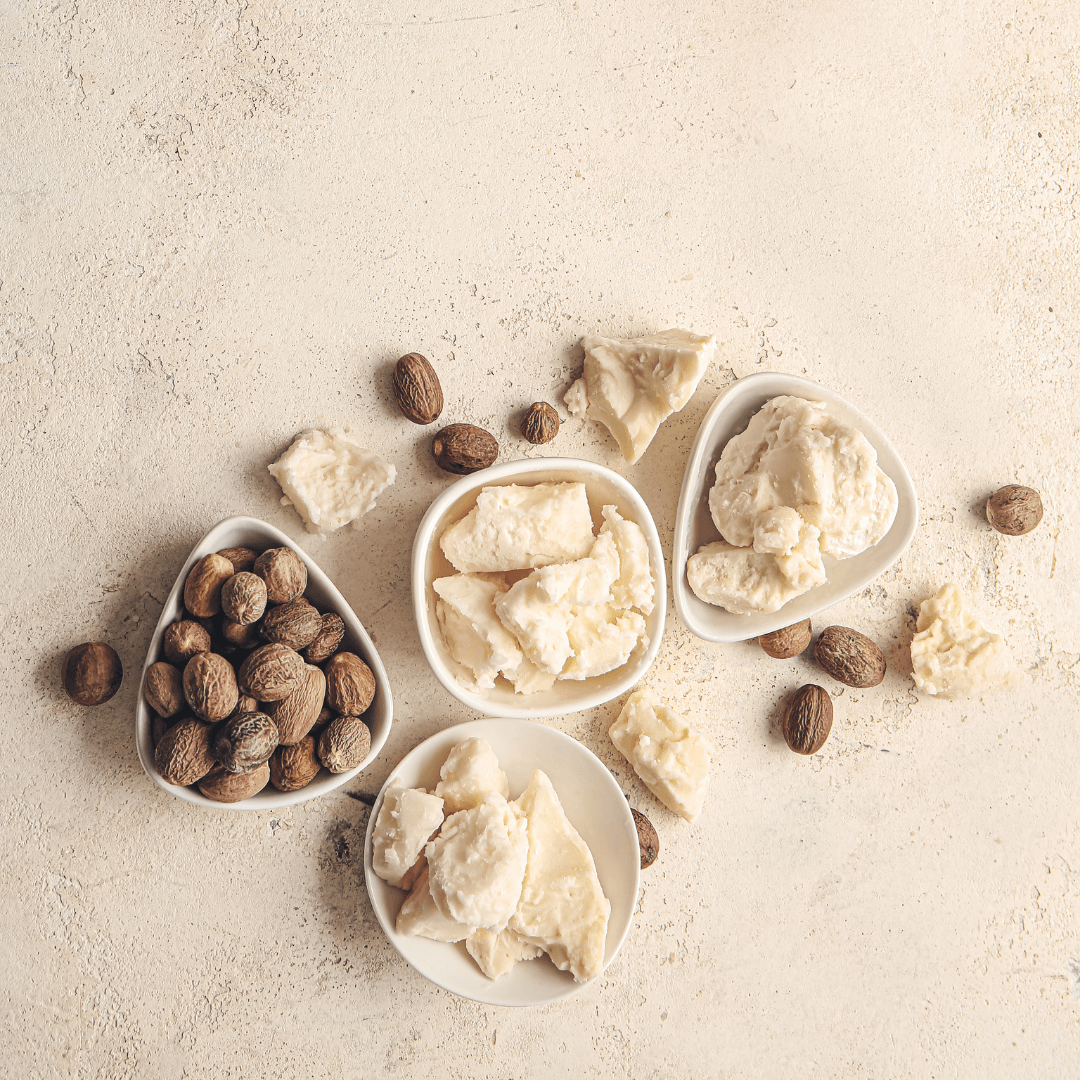
10. Nut Butter
Nut butter embodies creamy indulgence and emerges as a delectable and nutrient-dense addition to the spectrum of plant-based protein sources.
While peanut butter remains a household favourite, the realm includes almond, cashew, and walnut varieties, each delivering a unique blend of flavours and nutritional benefits.
These nutty concoctions serve as a dual powerhouse, offering a substantial dose of protein alongside a bounty of healthy fats, collectively supporting a range of bodily functions.
The protein content within nut butter aligns harmoniously with its role in supporting muscle maintenance and repair. This protein infusion and the inherent array of essential amino acids contribute to a well-rounded nutritional profile.
Simultaneously, the wholesome fats in nut butter, including monounsaturated and polyunsaturated fats, nurture heart health, cognitive function, and the absorption of fat-soluble vitamins.
Their culinary adaptability extends to myriad possibilities, from spreading them on whole-grain toast for a satisfying breakfast to blending them into smoothies for a velvety richness that enhances flavour and nutrition.
Moreover, nut butter can be transformed into delightful dips or serve as versatile ingredients in various recipes, infusing depth and complexity into sauces, dressings, and baked goods.
Nut butter is a harmonious blend of taste and nourishment in plant-based nutrition, inviting individuals to savour their luscious textures and multifaceted flavours.
With their marriage of protein and healthy fats, they exemplify the art of indulgence that not only delights the palate but also honours the body with a robust nutritional embrace. They spotlight the capacity of plant-derived ingredients to elevate culinary experiences while fostering wellness.
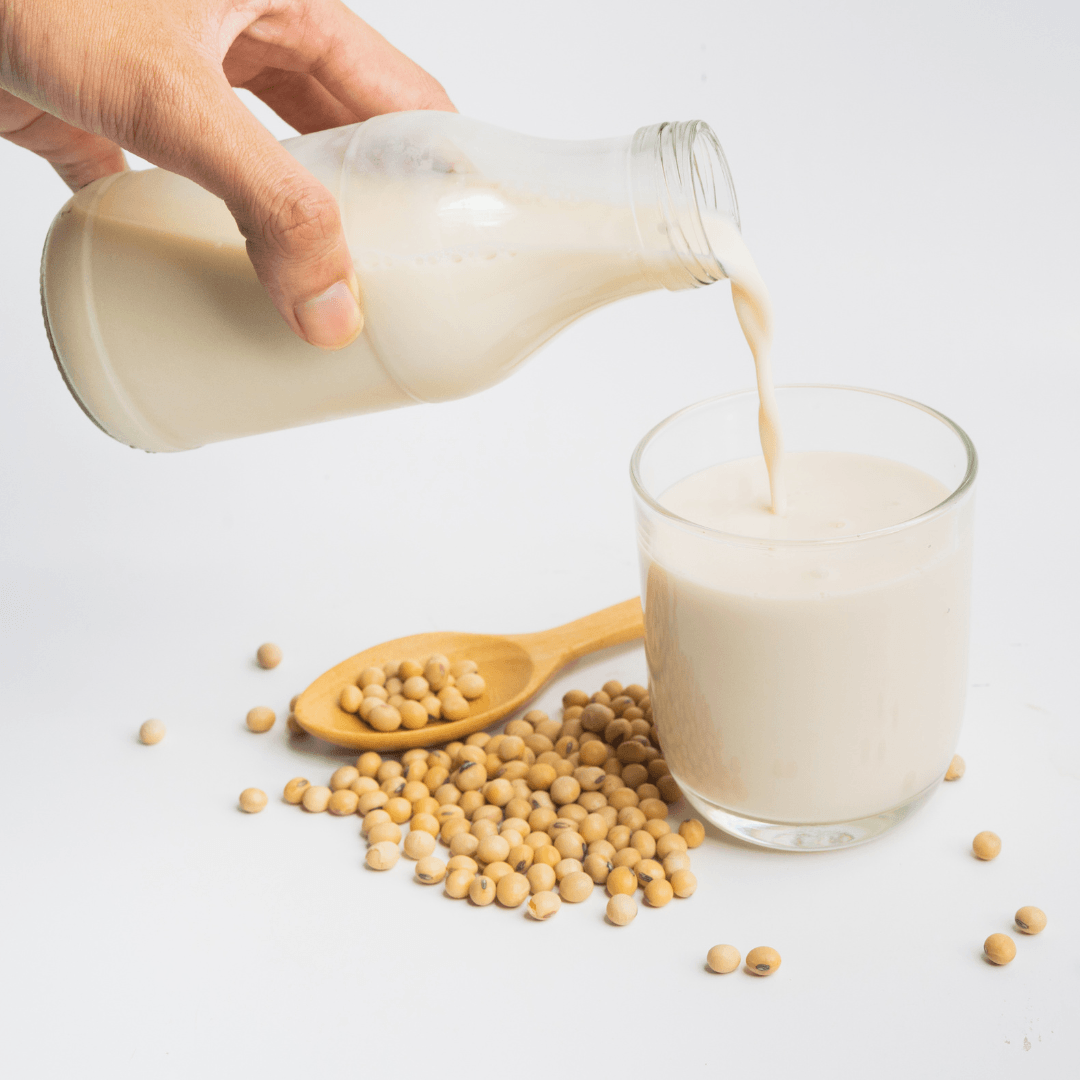
11. Soy Milk
Soy milk, a staple in plant-based beverages, is a versatile and protein-rich option that mirrors the protein content of its dairy counterpart.
Beyond its familiar status, the spotlight on soy milk's commendable protein profile is a testament to its capacity to meet the nutritional needs of individuals embracing a vegan lifestyle.
With a protein content comparable to cow's milk, soy milk is a strategic ally in attaining sufficient protein intake.
Soy milk's protein bounty is complemented by its unique array of amino acids, rendering it a complete protein source that supports muscle health, immune function, and overall vitality.
Its incorporation into daily dietary routines enhances protein intake and the essential nutrients contributing to overall well-being. This culinary staple's versatility knows no bounds, seamlessly integrating into various culinary creations.
It harmoniously melds into morning rituals when blended into smoothies or stirred into coffee, creating a sumptuous, protein-packed beverage that fuels the day.
Its adaptability extends to culinary applications, serving as an ideal base for crafting creamy sauces that elevate dishes' sensory experience while fortifying their nutritional value.
Conclusion
In the world of vegan nutrition, the landscape of protein sources is a vibrant tapestry woven from the bounty of plant-based ingredients.
The remarkable array of options available to those who embrace a vegan lifestyle is a testament to nature's rich potential to provide nourishment, sustenance, and vibrant health without animal products.
From legumes and nuts to innovative protein-rich alternatives, the vegan journey unveils a diverse and inspiring collection of sources that cater to protein needs while honouring ethical and environmental considerations.
This journey has illuminated that plants emerge as potent allies in their various forms in the quest for adequate protein intake.
From ancient grains to modern innovations, each source carries unique nutritional virtues, making it possible to craft a well-rounded and satisfying diet that meets protein requirements.
By adopting these plant-powered protein sources, people can improve their physical well-being and connect their dietary preferences with values such as compassion, sustainability, and environmental awareness.
The vegan lifestyle invites exploration, experimentation, and enjoyment of the beauty of a food that respects both individual health and the health of the world we call home. Its variety of protein-rich offers enriches it.
I trust you enjoyed reading the article about the Best Vegan Sources Of Protein. Please stay tuned; there will be more blog posts to come very shortly.
JeannetteZ
>>>Please click here to read my Vegan Travel Guides To World Destinations<<<
>>>Want To Learn How To Create Delicious, Cruelty-Free, Healthy AND 100% Vegan Meals? Try These Awesome Vegan Cooking Courses With A Free 7-DAY MEMBERSHIP<<<
Your Opinion Is Important To Me
Do you have thoughts, ideas, or questions? I would love to hear from you. Please leave me your questions, experiences and remarks about the Best Vegan Sources Of Protein in the comments section below. You can also email me at Jeannette@LivingTheVeganLifestyle.org.
Disclosure
This post may contain affiliate links. I earn from qualifying purchases as an Amazon Associate and other affiliate programs. Please read my full disclosure.
You might also enjoy these blog posts:
Best Vegan Omega-3 Supplement Brands
Nourishing Your Body With Vitamin D-Rich Vegan Foods
Best Vegan Beauty Personal Care Products
Best Vegan Pet Food For Health And Happiness

